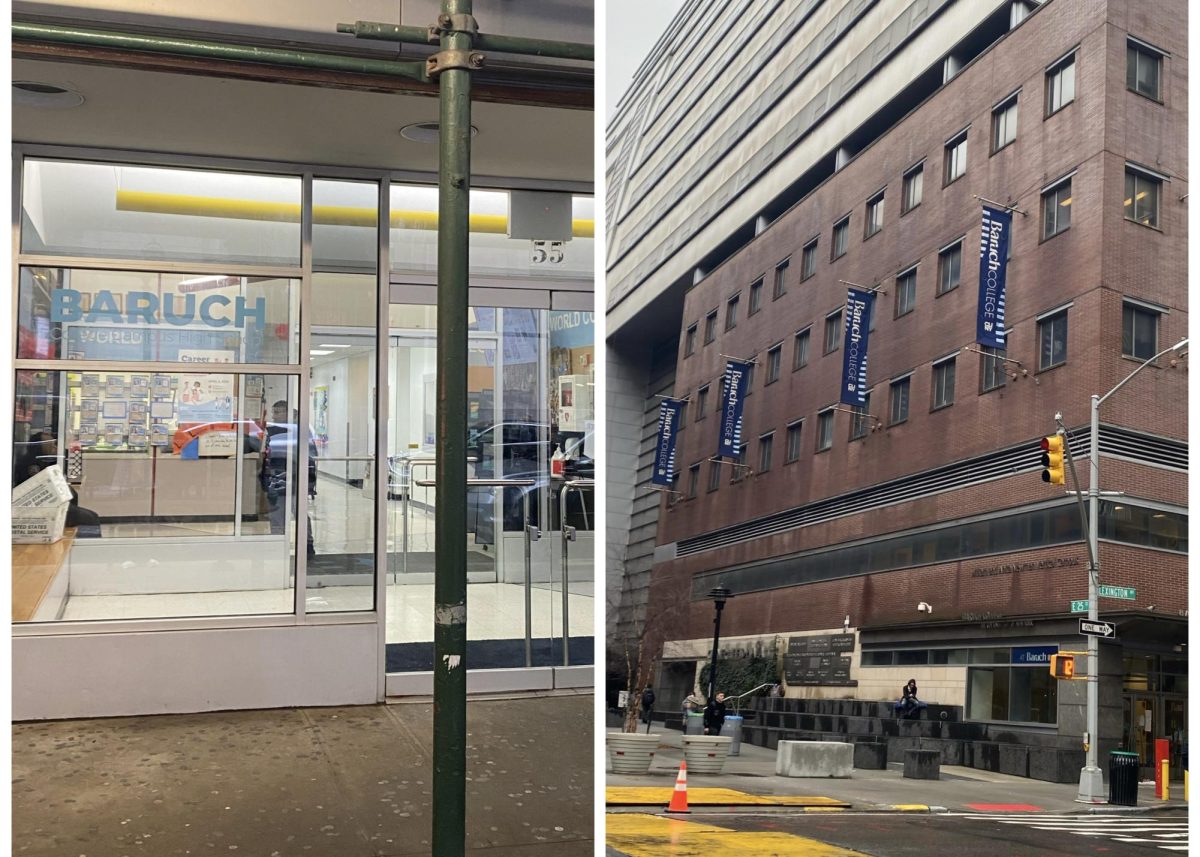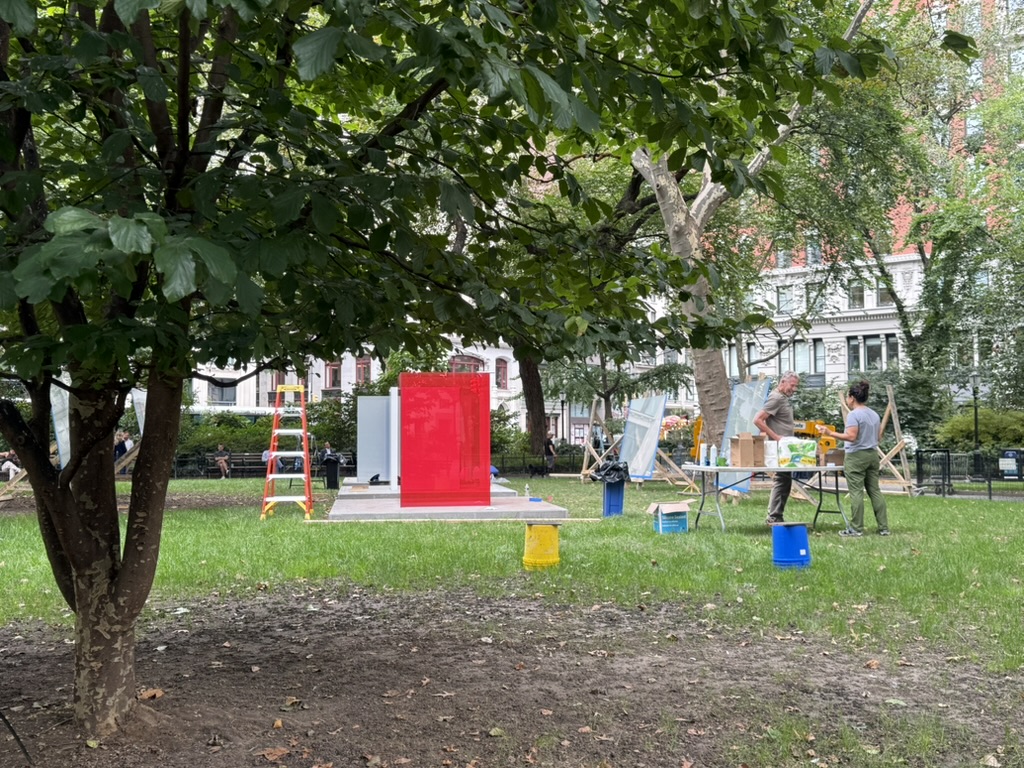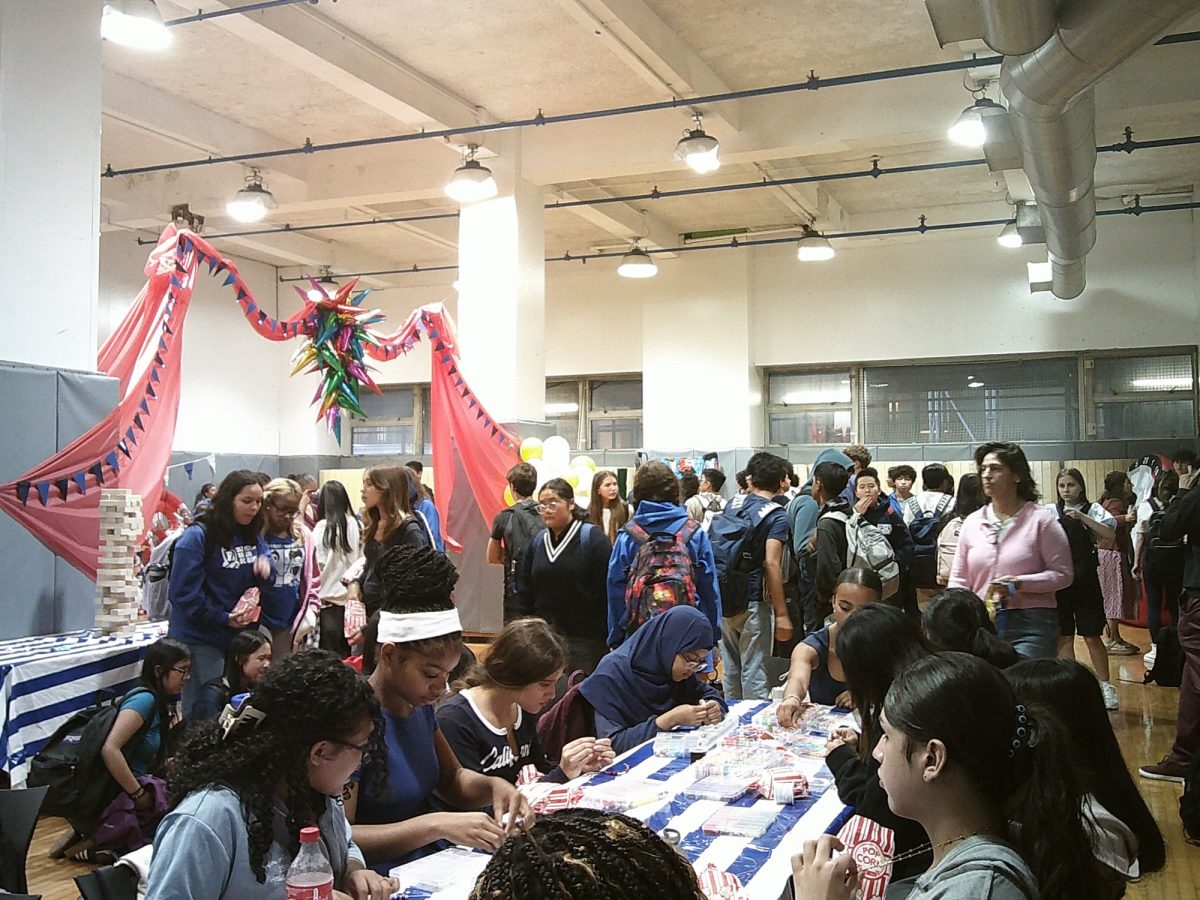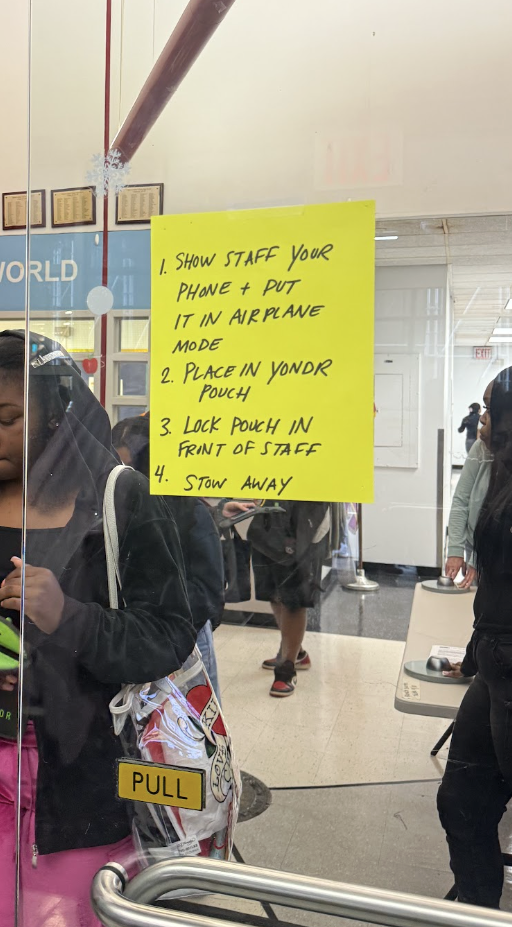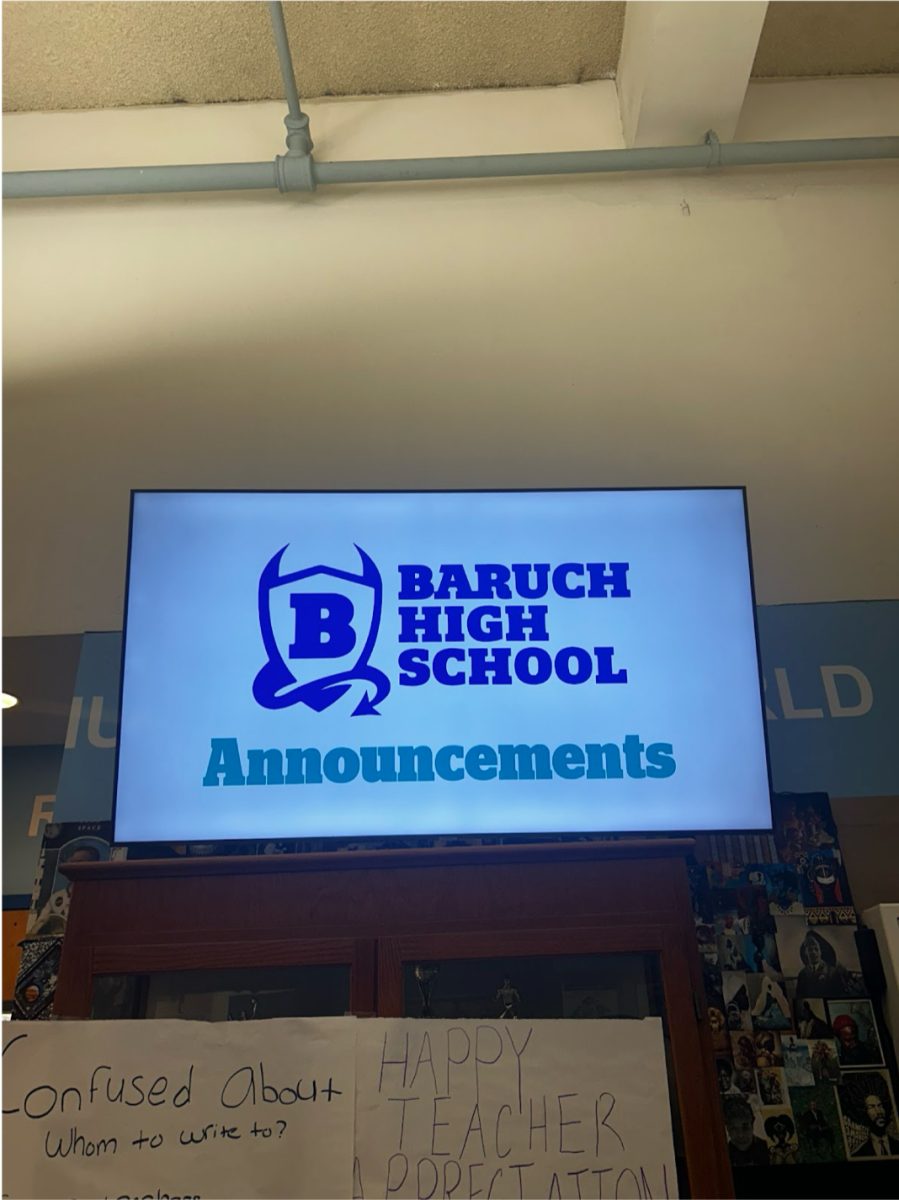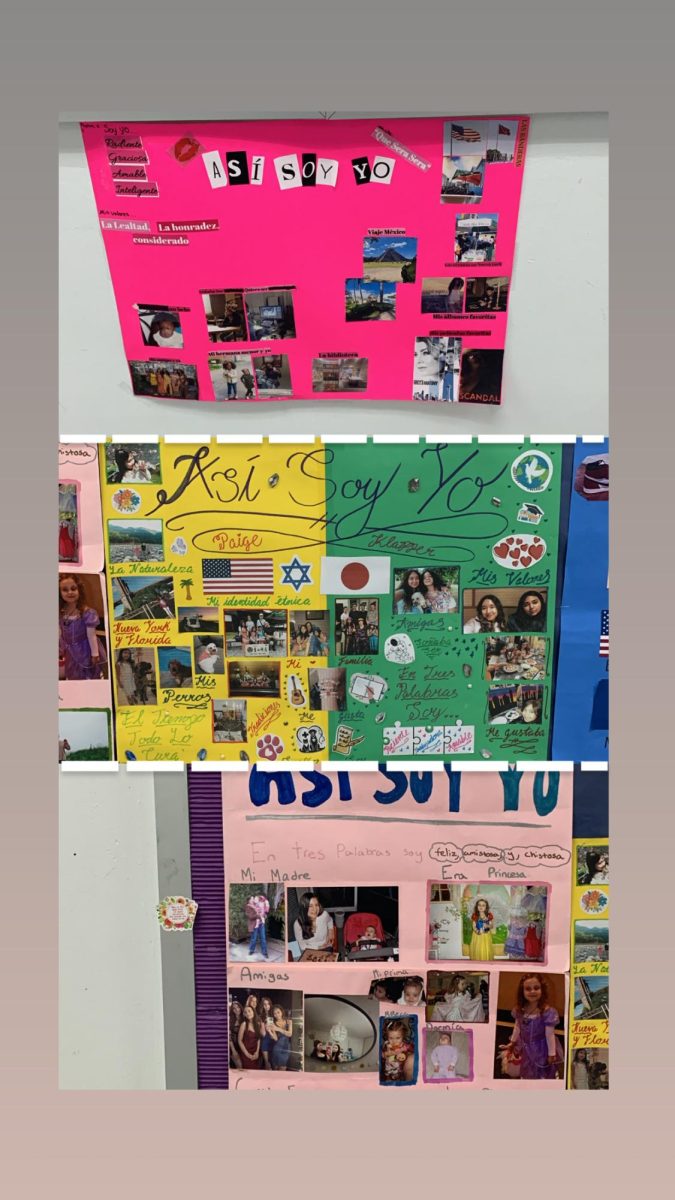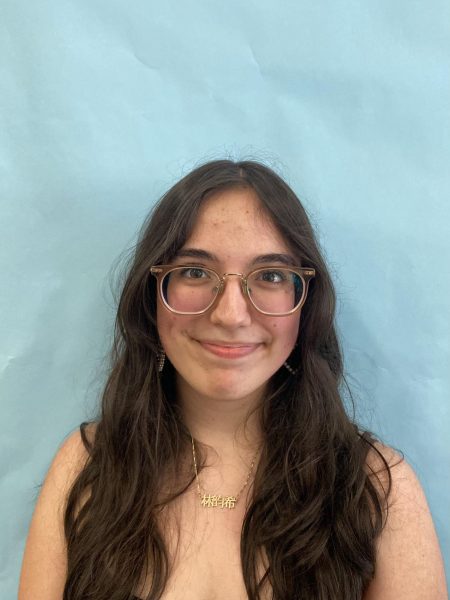Baruch College Campus High School can be found on Park Avenue and 25th Street, whereas its partner institution, Baruch College, has buildings one block away on Lexington Avenue.
Many BCCHS students are confused as to just how connected their school is with the college they might pass on their way to lunch. While they might know they have more access to college courses and enter school daily using IDs they got at in one of the college’s buildings, in general they are unsure.
Junior Samuel Buck said he and others aren’t really in the know about the partnership.
“I do not know anything about our connection to the college other than a name,” he said. “I’ve tried to find out some information; I can’t seem to get anywhere online with that.”
Principal Alicia Perez-Katz discussed what she had been told by BCCHS’s founding principal about the agreement between the schools.
“She told me that there was basically an agreement like a handshake, there was nothing in writing,” said Perez-Katz.
At first, the CUNY system itself had funding provided to high schools attached to it. Now, these schools operate under CollegeNow, CUNY’s dual-enrollment program. This change occurred because “money dried up.”
Years prior to that shift, after the verbal acknowledgement, BCCHS was established in one of the college’s buildings on 17th Street. It moved to an 18th Street Baruch building a few years later.
Ultimately, the college needed the space used by BCCHS, resulting in the high school’s third move to its current location which is off of the CUNY college’s campus.
Talks occurred after the final move in 2009 and resurfaced again around 2020 about possibly changing Baruch College Campus High School’s name. However, Perez-Katz said the process is very lengthy, plus the school community felt like BCCHS’s name “had some kind of value.”
The name of the school confused senior Kaleo Bogawa who said he thought the building was technically on Baruch College’s campus.
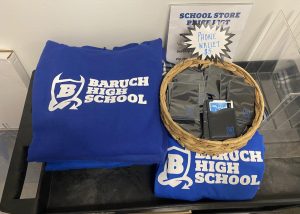
“The [recent] decision was [to] call ourselves Baruch High School but not change it on paper because the community felt like there was already history with our name,” said Perez-Katz. “So we just started putting ‘Baruch High School’ on our gear.”
However, the high school’s name and its previous location are not the only aspects connecting the institutions. Course offerings also play a role.
For evening CollegeNow classes at Baruch College, BCCHS students are prioritized during the application process over other students in NYC. Buck, the junior, said he was aware of this fact but had questions about other instances of preference given to BCCHS students.
“When it comes to the college, one of the questions that I was always asking was ‘Does having come to this school help you get an advantage when you [apply to] the college’,” he said. “One answer I got was no, which makes sense.”
There are more benefits for the high school students, though. College Calculus, for example, is a class which can be taken instead of calculus at the honors or Advanced Placement (AP) level.
BCCHS students can earn credit through Baruch College when they take the class and it also fulfills a math requirement for these students’ high school diplomas. Seniors in the course, such as Bogawa, leave BCCHS during the school day to walk the couple of blocks over to a college classroom.
“Being inside the school and taking a class inside of the college is definitely what made me think or made me feel that connectedness between the high school and the college,” said Bogawa.
He said he doesn’t think he’d feel the tie between the two schools as much if he wasn’t taking the course.
“Without being there, I probably wouldn’t really notice the college besides walking past it,” he said.
However, Bogawa also said seeing college students walking around creates a unique environment – even if not in College Calculus, though that also plays a role.
“Seeing what they’re doing and where they’re eating, it kind-of feels like you’re almost integrated with some of the college life,” he said. “Especially as a senior and somebody who’s going into the college twice a week.”
For now, College Calculus is the only joint course offered, but in the past, Baruch College professors would come to BCCHS to teach electives such as psychology. Perez-Katz said she would like to have more dual-credit classes open to her Baruchians – maybe computer science or a liberal arts course.
Also in previous years, Baruch College’s gym was used more often by the high schoolers whether that be for physical education when BCCHS was on the college’s campus or for pep rallies and assemblies after the move to 25th and Park. These events stopped occurring because COVID-19 resulted in a temporary closing of the college’s buildings.
Nowadays, the college’s auxiliary gym is used for BCCHS’s home basketball games (though team captain and senior Ermin Sabovic said one match during the recent season was played in its main gym).
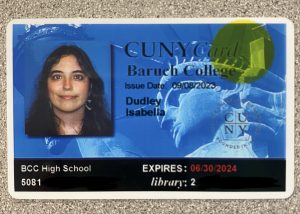
Every year, BCCHS students obtain a CUNY ID which also allows them to access the other school’s library. Buck said he’s never used his ID for this reason and doesn’t think most other students do, either. Bogawa said he used it for an English project once since his teacher, John Downes-Angus (who is also The 411 Press’s advisor), advocated for its use.
“Because of that, I feel like there were definitely a lot more students who were going,” said Bogawa. “But generally, I don’t really know of other kids who were using the library, including myself.”
As for other buildings, BCCHS seniors graduated in the college’s auditorium in years past. Now, they walk across the stage to receive diplomas elsewhere.
“Our graduation is at Cooper Union because it’s actually cheaper than what Baruch College offered,” said Perez-Katz.
While graduation is the end of the high school experience for Baruchians, applying to BCCHS itself is the beginning – and the school being affiliated with the college pushed Bogawa to favor it.
“The fact that it gave opportunities to take college courses within the college and be able to gain college credits for college was something that [I] definitely thought was a big plus,” he said.
While it may seem unclear at times, the partnership between the two Baruchs is still in-tact.
“During my time as principal, I’ve worked with different presidents of the college, different chancellors, to try to continue to nurture the relationship,” said Perez-Katz.


